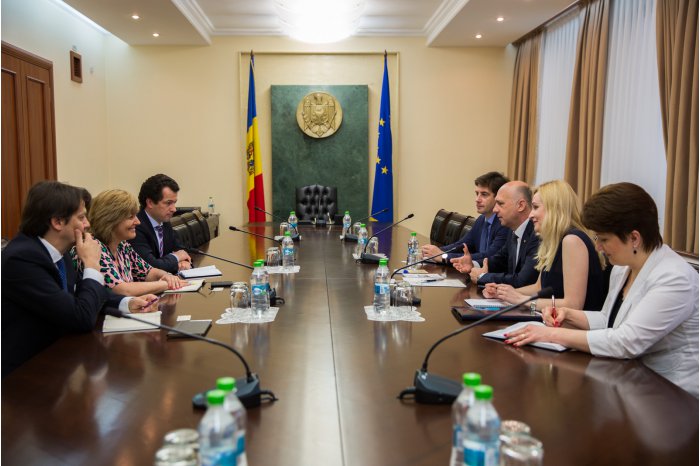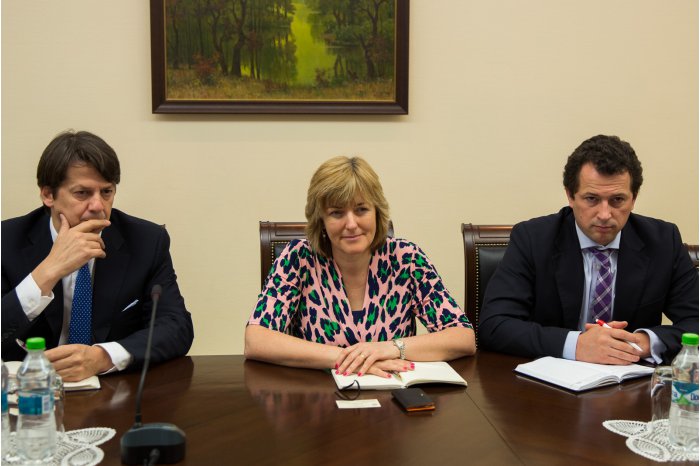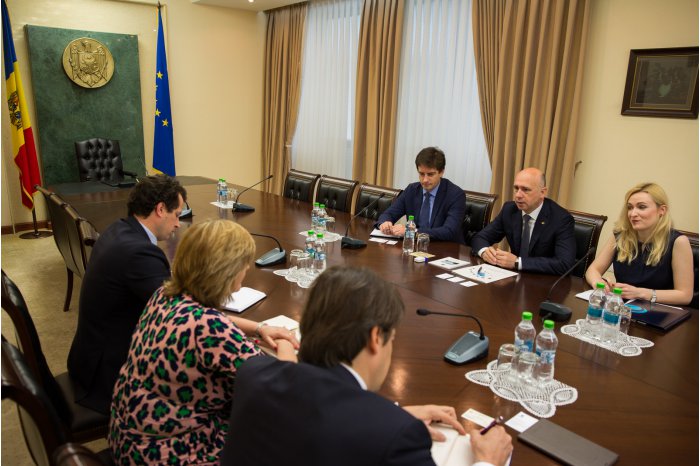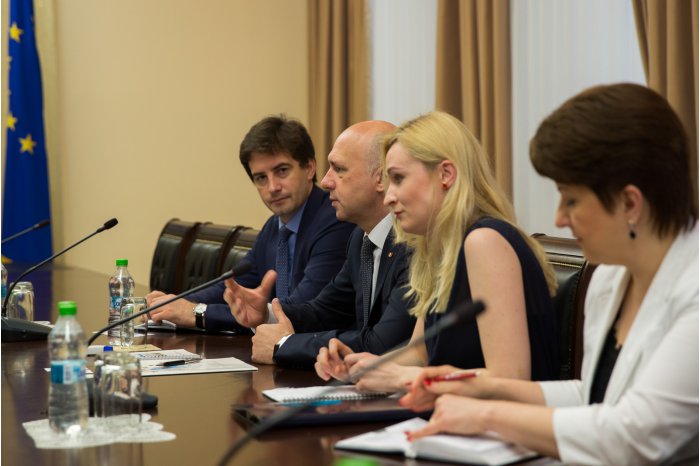Global IT services company to expand activity in Moldova
15:18 | 02.06.2016 Category: Official
Chisinau, 2 June /MOLDPRES/-Prime Minister Pavel Filip and new Ericsson Customer Head for South-Eastern Europe, Marie Large, held a meeting today. The officials discussed the government’s actions to improve the business environment as well as the opportunities the law on IT parks offers, the government’s communication and press relations department has reported.
The prime minister unveiled the steps the Moldovan government had taken to ensure the attractiveness and competitiveness of Moldova’s business environment in the regional context. To this effect, he touched upon the moratorium on state controls, cutting down control bodies from 69 to 10, along with 4 independent regulators, as well as ensuring an amount of new and clear rules for the business activity.
Filip focused on the opportunities the government had offered to develop businesses within the future IT parks, due to start their activity on 1 January 2017. The Moldovan parliament voted this law in final reading and is now carrying out an associated framework to implement it. The introduction of a single seven-per-cent sales tax for the park’s residents is also a novelty. Authorities are simultaneously working on school programmes providing for digital education and launching the IT Center of Excellence, in charge of training highly qualified IT experts.
Large praised the government’s initiatives to improve the business environment and confirmed Ericsson’s interest in activating within virtual IT parks. The foreign official noted that Ericsson’s Operational Network Administration Center in South-East Europe, placed in Chisinau, aimed to expand.
Filip thanked the Ericsson representatives for investing in Moldova’s economy, urging them to expand their business in Moldova and create new jobs.
Ericsson is a global supplier of technology and communication services. It has clients in over 180 countries and supports networks with more than 2.5 billion subscribers also owning 40 per cent of the world mobile traffic.
(Editor M. Jantovan)




